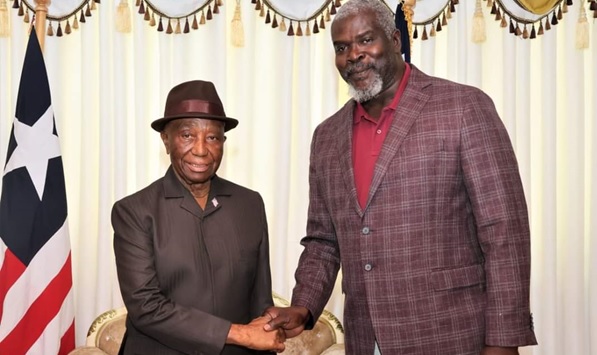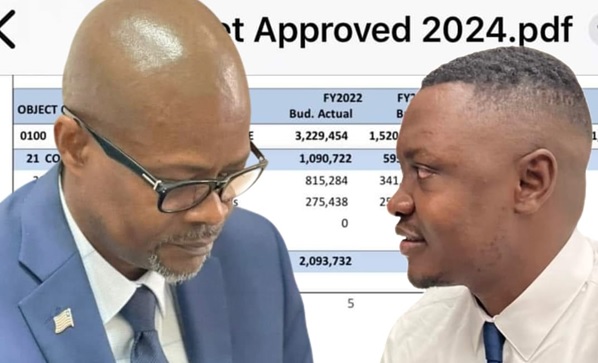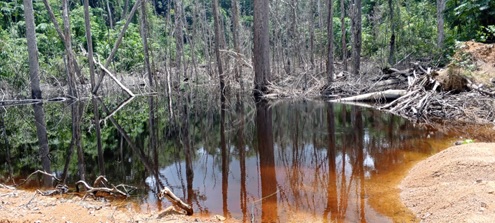MONROVIA – The Boakai-Kpung administration is facing severe criticism for its apparent disregard for accountability, epitomized by the controversial actions of Ambassador-At-Large for Tourism, Mr. Christopher Onanuga. Just seven months into their term, the administration, which campaigned on pillars of accountability, transparency, and openness during the 2023 presidential election, appears to have betrayed these promises by embracing individuals with tainted pasts.
Christopher Onanuga, who was indicted by Global Witness over the Sable Mining Scandal in Liberia, exemplifies this troubling trend. In 2016, he and seven others were accused of receiving US$950,000 in bribes from British company Sable Mining to amend the Public Procurement and Concession Commission (PPCC) Act of 2005 in favor of the company to mine the Wologisi Mountain in Lofa County. Despite these serious allegations, Onanuga now holds a prominent position in the Boakai administration.
Adding insult to injury, Onanuga’s recent behavior has sparked widespread outrage. Images surfaced of him traveling first class using a Liberian diplomatic passport, a luxury that starkly contrasts with Liberia’s status as the world’s eighth poorest country in 2024. In a social media post, Onanuga flaunted his opulent lifestyle: “#tourism So when the Lord takes you from point to point in finding collective solutions to national endeavors, it means He placed Grace and Favor upon you to deliver for his people in Line with your Boss… JNB does not want talk, instead he needs Action for us Liberians. We are on the train for just this purpose, watch out as we deliver in all directions…”
Civil society activist Martin Kollie has been a vocal critic, describing President Boakai’s current approach as “business as usual.” In a pointed statement titled “Boakai’s Officials Flaunt Being in First Class with Liberian Diplomatic Passports,” Kollie expressed disbelief at the continuation of opulent practices under the new administration. He emphasized that both Onanuga and the President’s Envoy on Investment, Mr. Mohammed Maladho Bah, were seen traveling in first class, a display of insensitivity given Liberia’s widespread poverty.
Kollie highlighted that whether these luxury trips are funded by the government or not, they project an image of privilege and detachment from the realities faced by ordinary Liberians. The fact that Mr. Bah has a prior conviction for theft, and Mr. Onanuga’s past indictment for corruption, only deepens the sense of betrayal felt by the public.
“Is this NOT business as usual? Is the economy still in the toilet, or has it left from there? I think it is now in the septic tank,” Kollie remarked.
The backlash underlines a growing discontent among Liberians who had hoped for significant changes and improved governance under President Boakai. As his administration faces mounting criticism, the promise of economic freedom and transparency remains a pressing issue for many citizens. The coming months will be crucial in determining whether President Boakai can realign his administration’s actions with the pledges that garnered him support during the election campaign.
Political analysts warn that if President Boakai fails to address these concerns, he risks losing the trust of the electorate that propelled him to power. The perception of hypocrisy and broken promises could have long-term implications for his administration and the Unity Party as a whole. As the country faces with economic challenges, maintaining public confidence is paramount for effective governance and national stability.
Moreover, the situation raises bigger questions about accountability and reform within Liberia’s political landscape. The continued practice of flying first class by government officials, despite previous criticisms, emphasizes a persistent culture of privilege that many citizens hoped to see eradicated. Calls for greater transparency and adherence to campaign promises are growing louder, signaling a critical juncture for President Boakai’s leadership







